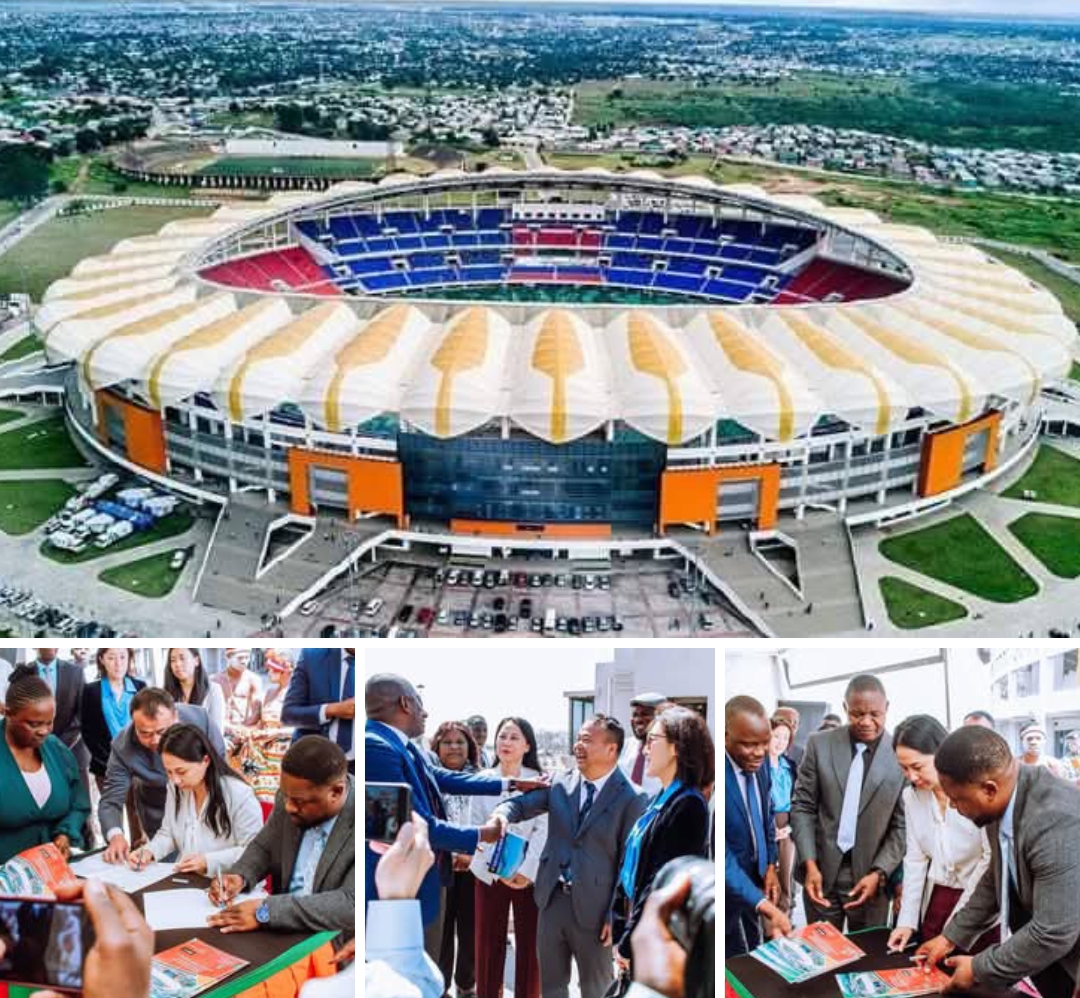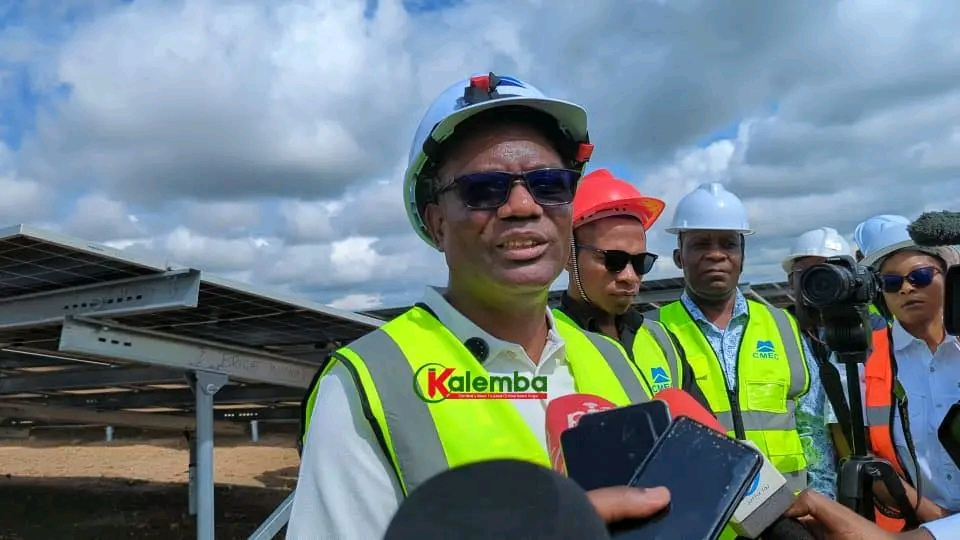THE ROAR of the crowd, the shared thrill of victory and the iye!! exclamations triggered by near misses has always defined the four walls of National Heroes Stadium in Lusaka and Ndola’s Levy Mwansa stadium.
https://www.facebook.com/share/p/1GFaRRdDkk
But today, the stadia have attached more than just moments or memories of football, as Government turned the two arenas into power generators with the installation of solar, guaranteed to generate a combined 20 megawatts of power from the facilities.
This landmark initiative was made possible through a partnership between Government and Jiangsu Fanye Power Energy Equipment.
The first set of solar batteries at the National Heroes Stadium has already arrived, signaling the dawn of a new era in Zambia’s journey towards green energy.
It was revealed that the National Heroes Stadium, for example, will use just one megawatt of its own power, sending the remaining 9 megawatts directly to nearby neighborhoods like Mandevu, Matero, and Kabanana.
Speaking at the signing ceremony of a Memorandum of Understanding (MoU) with Jiangsu Fanye Power Energy Equipment company in Lusaka today, Minister of Youth, Sport and Arts Elvis Nkandu, emphasised that the solar installations at the two stadiums will not only power the stadiums but also contribute to the national grid, benefiting communities in the surrounding areas.
Nkandu stated that by feeding excess solar power into the national grid, the project aims to extend the benefits of clean energy beyond the stadiums’ walls, supporting the transition to renewable energy on a larger scale and positively impacting the lives of residents in both Lusaka and Ndola.
Nkandu highlighted the detrimental impact of power outages on various sectors, with disruptions in manufacturing resulting in lost productivity, revenue, and GDP growth.
He stated that this, in turn, increases operational costs for businesses, leading to higher prices for consumers and a higher cost of living.
“Therefore, addressing the power crisis with renewable energy sources like solar power is essential to safeguard Zambia’s economic aspirations and secure a prosperous future for the country,” he said.
“Upon completion, the National Heroes Stadium will consume approximately one megawatt of the generated solar power. The remaining nine megawatts will be directed to the grid, providing energy to the surrounding communities of Mandevu, Matero, and Kabanana. Furthermore, this initiative will be extended to other stadiums and youth resource centers across Zambia.”
And Jiangsu Fanye Power Energy managing director Amy Meng stated that initiative is not just about introducing innovative technology, but also about fostering job creation, empowering youths, and enabling them to contribute more actively to Zambia’s development.
Meanwhile, Energy Minister Makozo Chikote noted that utilising solar power could significantly contribute to stabilising the country’s energy supply while reducing its reliance on hydropower, which is susceptible to fluctuations caused by weather patterns and natural disasters.
Story by Sharon Zulu
Kalemba August 21, 2025





